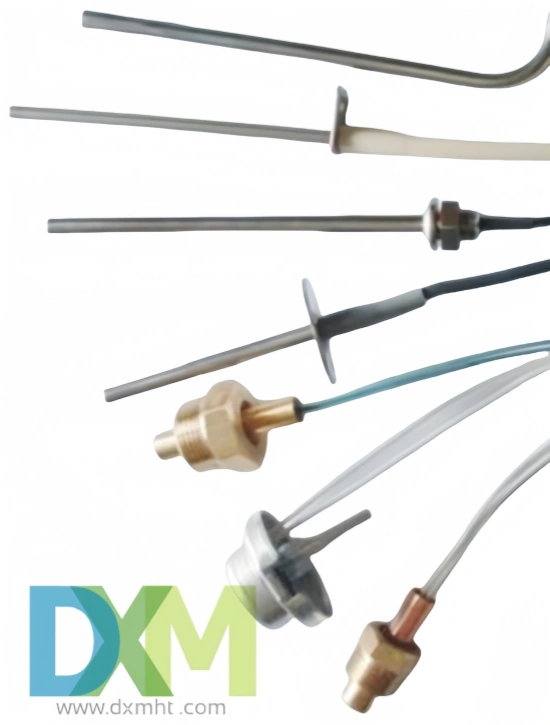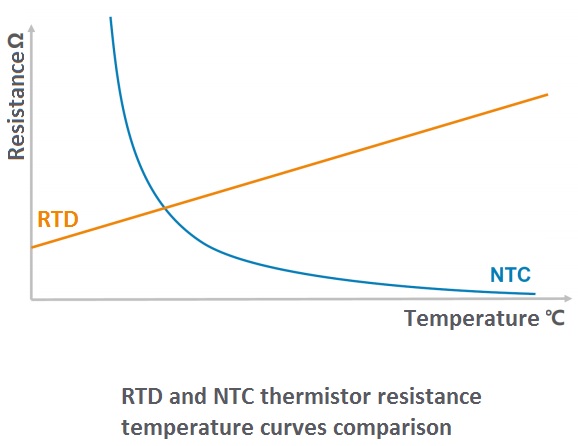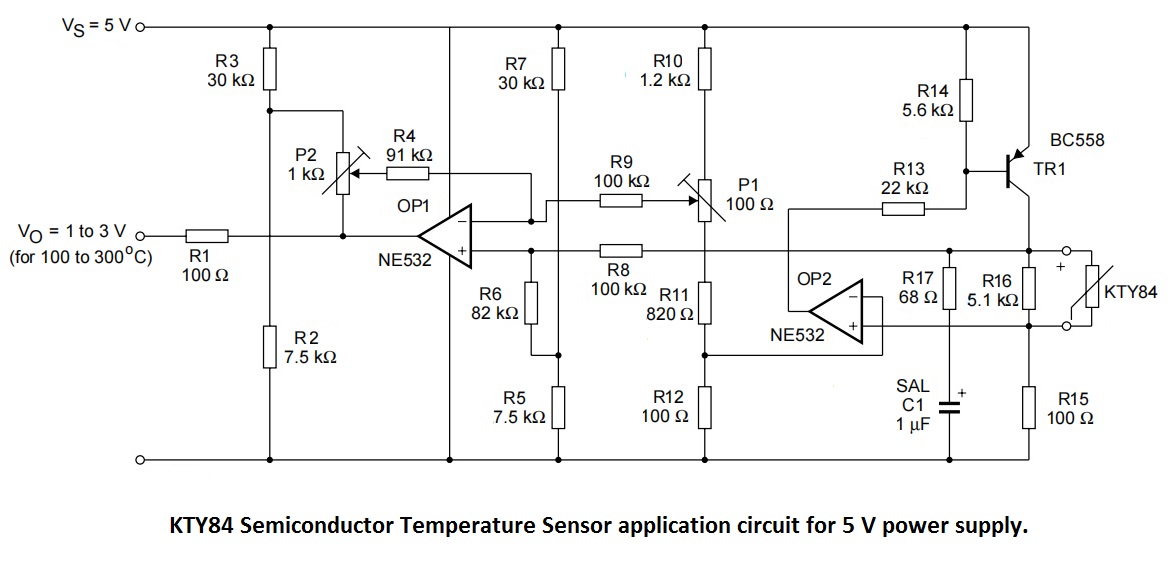Temperature Sensor Applications in Various Industries
A Comprehensive Guide of Temperature Sensor Applications in Various Industries Temperature sensors are vital components in various industries and everyday applications. They provide accurate and reliable temperature measurements crucial for the optimal oper……
- A Comprehensive Guide of Temperature Sensor Applications in Various Industries
- 1. Introduction to Temperature Sensor
- 2. Types of Temperature Sensors
- Temperature Probes
- Thermistor sensor s (NTC sensor and PTC sensor )
- Resistance Temperature Detectors (RTDs)
- Semiconductor Temperature Sensors
- 3. Household Applications
- Air Conditioners
- Refrigerators and Freezers
- Water Heaters
- Cooking Appliances
- Dishwashers and Washing Machines
- 4. Automotive Applications
- Engine Temperature Monitoring
- Climate Control Systems
- 5. Industrial Applications
- Manufacturing Processes
- Food and Beverage Industry
- Chemical Industry
- 6. Medical Applications
- Patient Monitoring
- Laboratory Equipment
- 7. Environmental Monitoring
- Weather Stations
- Greenhouse Monitoring
- 8. Conclusion

A Comprehensive Guide of Temperature Sensor Applications in Various Industries
Temperature sensors are vital components in various industries and everyday applications. They provide accurate and reliable temperature measurements crucial for the optimal operation and safety of numerous devices and systems. This article explores the wide-rang applications of temperature sensors, including household appliances, automotive systems, industrial processes, and more. We will cover different types of temperature sensors, such as temperature probe,thermistor sensor(PTC sensor,NTC sensor) , RTDs,semiconductor Temperature Sensors, and their specific uses. Additionally, we’ll discuss the importance of temperature sensors in various fields, supported by relevant images and diagrams.
1. Introduction to Temperature Sensor
Temperature sensors, also known as temperature probes or heat sensors, are devices that measure temperature through various techniques. These sensors are crucial for maintaining the correct temperature in various applications, ensuring safety, efficiency, and comfort. Common types of temperature sensors include temperature probes, thermistor sensors(PTC sensor,NTC sensor) ,RTDs and semiconductor sensors.
2. Types of Temperature Sensors
Temperature Probes
Temperature probes, also known as temperature sensors, are devices that measure temperature and convert it into a readable form for various applications. They are essential in maintaining optimal conditions and ensuring safety across different fields.
Thermistor sensor s (NTC sensor and PTC sensor )
Thermistor sensors are temperature-sensitive resistors. They come in two types: Negative Temperature Coefficient (NTC sensors) and Positive Temperature Coefficient (PTC sensor). NTC thermistors decrease in resistance as temperature increases, making them ideal for precise temperature measurements in a wide range of applications, including household appliances and automotive systems. PTC thermistors, on the other hand, increase in resistance with temperature, often used as overcurrent protection devices.
Resistance Temperature Detectors (RTDs)
RTDs, such as the PT100 temperature sensor, measure temperature by correlating the resistance of the RTD element with temperature. They offer high accuracy and stability over a wide temperature range, making them suitable for industrial applications.

Semiconductor Temperature Sensors
These sensors use semiconductor materials such as kty84-130 etc. to measure temperature changes. They are commonly used in digital temperature sensors for their precision and integration capabilities with electronic systems.

3. Household Applications
Temperature sensors play a crucial role in household appliances, ensuring they operate efficiently and safely.
Air Conditioners
Air conditioners use ambient temperature sensors and thermostat temperature sensors to regulate indoor temperature. These sensors help maintain a comfortable environment by controlling the cooling cycle based on the room’s temperature.
Refrigerators and Freezers
Refrigerator temperature sensors and oil temp sensors monitor and control the cooling process to keep food fresh. Accurate temperature control is essential to prevent spoilage and ensure energy efficiency.
Water Heaters
Water heaters use temperature and humidity sensors to maintain the desired water temperature. These sensors prevent overheating and ensure a steady supply of hot water.
Cooking Appliances
Temperature probes are integral to cooking appliances like ovens, microwaves, and coffee makers. They ensure food is cooked to the right temperature, enhancing safety and cooking precision.
Dishwashers and Washing Machines
Temperature control sensors in dishwashers and washing machines regulate the water temperature for effective cleaning. These sensors ensure the appliances operate efficiently and prolong their lifespan.
4. Automotive Applications
In the automotive industry, temperature sensors are vital for monitoring and controlling various systems.
Engine Temperature Monitoring
Temperature probes in car engines measure the coolant temperature, providing essential data to the engine control unit (ECU). This information helps prevent overheating and optimizes engine performance.
Climate Control Systems
Automotive air conditioning systems use temperature sensors to maintain a comfortable cabin environment. These sensors adjust the cooling and heating cycles based on the internal and external temperatures.
5. Industrial Applications
Temperature sensors are extensively used in industrial settings to monitor and control processes, ensuring efficiency and safety.
Manufacturing Processes
In manufacturing, temperature sensors are crucial for processes like metal forging, plastic molding, and chemical production. They provide accurate temperature readings to maintain optimal conditions and product quality.
Food and Beverage Industry
Temperature sensors in the food and beverage industry ensure products are stored and processed at the right temperatures, maintaining safety and quality standards.
Chemical Industry
In the chemical industry, precise temperature control is essential for reactions and product stability. Temperature sensors help monitor and maintain the required conditions throughout the production process.
6. Medical Applications
Temperature sensors are critical in the medical field for patient monitoring and laboratory equipment.
Patient Monitoring
In healthcare, temperature sensors are used in devices like thermometers and patient monitoring systems to track body temperature, an essential vital sign.
Laboratory Equipment
Temperature control is crucial in laboratory equipment, such as incubators and autoclaves, to ensure accurate experimental conditions and sterilization processes.
7. Environmental Monitoring
Temperature sensors are used in various environmental monitoring applications to track and control environmental conditions.
Weather Stations
Weather stations use temperature and humidity sensors to measure atmospheric conditions. These sensors provide essential data for weather forecasting and climate studies.
Greenhouse Monitoring
In agriculture, temperature control sensors help maintain optimal growing conditions in greenhouses. They regulate heating and cooling systems to ensure plants thrive.
8. Conclusion
Temperature sensors are indispensable tools across various industries and everyday applications. From household appliances to industrial processes, automotive systems, and medical devices, these sensors provide critical data that ensures safety, efficiency, and comfort. Understanding the different types of temperature sensors and their applications can help in selecting the right sensor for specific needs.
You may also like

PT1000 Temperature Sensor: DXM Precision Platinum RTD Solutions

KTY83-110 Sensor with Silicon Glass Thermistor

Bracket Type NTC Thermal Sensor MF52X for Precise Temperature Measurement

Glass Thermistors MF58E for High-Precision Applications
Get in Touch
Discover premium thermistors, sensors, and resistors tailored to your needs.Our dedicated team of experts is available to assist with product selection, technical queries, and after-sales service. Contact us for custom solutions and experience exceptional customer support.
© 2025 DXM | All Rights Reserved.

 Scan QR Code
Scan QR Code
Scan QR Code
Whatsapp: +8618927361658
Shenzhen DXM Technology Co., Ltd.
DXM PTCNTC
Shenzhen DXM Technology Co., Ltd